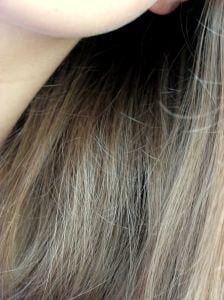Hair loss is a disconcerting problem that affects many women. While some hair loss is due to genetic makeup and some hair loss is a sign of aging, other types of hair loss indicate overall poor health. Knowing the reasons for hair loss in women can help you to prevent further health problems by seeking the proper medical attention.
Alopecia
Alopecia is a disease that causes the body to attack the hair follicles, causing hair loss. Occasionally alopecia is linked with other diseases, such as lupus or rheumatoid arthritis. Most hair loss in females that is caused by alopecia is seen in prepubescent children through young adults. While many cases of alopecia attack the scalp alone, sometimes body hair will also be affected. The University of Maryland Medical Center warns that not all types of alopecia are reversible, so the issue of hair loss should be addressed immediately.
Hormonal Change
During puberty, pregnancy and menopause, women experience fluctuating hormones. These fluctuations are known to cause hair loss in women when their estrogen levels drop and their levels of androgen, a male hormone, rise. During puberty and pregnancy this hair loss is typically reversed. However, women who begin to lose their hair after menopause are not likely to regrow their hair. This is because many post-menopausal women’s ovaries begin to produce androgens once they stop producing estrogen.
Deficiencies
Common dietary deficiencies linked to hair loss in women include zinc, biotin, B vitamins and omega-3 fatty acids. However, iron deficiency is by far the most common dietary deficiency to cause hair loss. Eating plenty of legumes, fish and leafy greens should be enough to ensure that your hair remains healthy and well nourished.
Underactive Thyroid
The thyroid works to create the body’s hormones. When this gland cannot produce an adequate amount of hormones, the result is hypothyroidism. Aside from hair loss, hypothyroidism causes rapid weight gain, joint pain and heart disease. A suspected case of hypothyroidism should be addressed as soon as possible to prevent further complications.
Medications
According to the Department of Psychiatry and Behavioral Science at the University of Louisville, several medications used to treat psychological disorders can contribute to female hair loss. Anti-depressants and mood elevators are among the most prevalent of these medications, with 12 percent to 19 percent of all long-term female users of lithium afflicted with hair loss.





